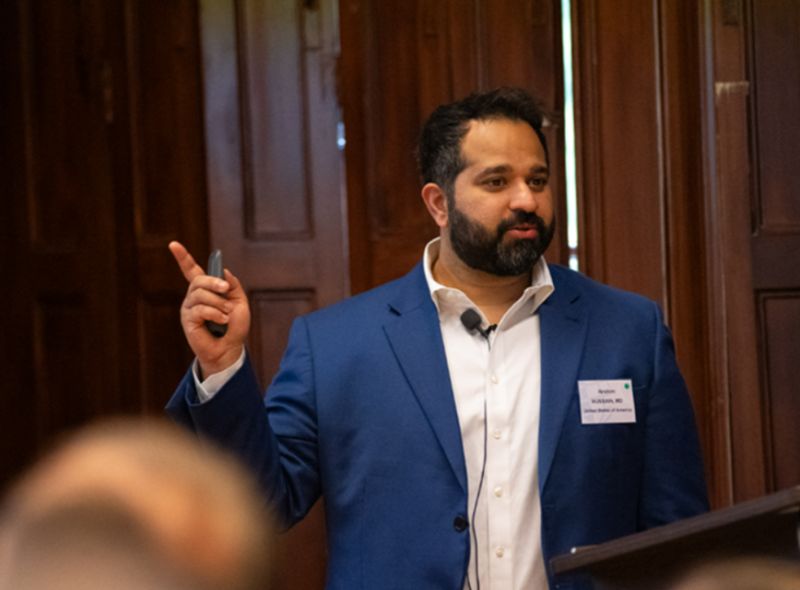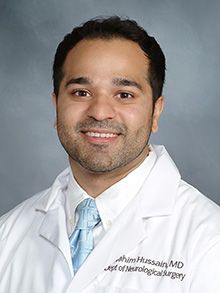
Ibrahim Hussain’s parents always encouraged him to be a doctor or engineer. His mother was an X-ray tech and his father was a medical engineer; they were both Pakistani immigrants who wanted to see their son succeed. "I had the idea in my mind that I wanted to be a doctor," says Dr. Hussain, but not a neurosurgeon. In fact, in med school, he was "set on being a radiologist."
"I had a book of all the specialties, and I specifically skipped neurosurgery," says Dr. Hussain. "I thought, 'Why would someone want to train for seven years and have that life?"

Dr. Hussain in 2013, as he began his residency in neurosurgery at NewYork-Presbyterian/Weill Cornell Medical Cente
He applied for research projects with 20 radiologists. "The only one who answered me was a neurosurgeon doing radiology-related research," says Dr. Hussain. "He's the reason I went into neurosurgery."
Dr. Hussain treats patients with various spinal disorders and is the independent neurologic consultant for the New York Giants. "One of the more gratifying things about spine surgery is that we're trying to give patients back quality of life," he says.
Quality of life means different things to different patients. For an elite teen fencer who suffered a traumatic cervical spine fracture, it meant returning to full-time athletics, which enabled him to get a scholarship. For a 75-year-old grandmother, the only goal was to be able to play with her grandkids.
Among the most rewarding cases for Dr. Hussain is correcting serious problems like tumors, paralysis and traumatic brain injuries. In one case, a young patient had a fractured skull after being struck by an e-bike. After the operation, Dr. Hussain told the family, "I don't know if he's going to survive, and if he does I don't know what permanent impact or deficit he's going to have."
"Three months later, he walked into my clinic and was completely normal," he says. "For all the time and sacrifice we put in, the time away from my kids, those are the wins that keep you going."
But for all his technical expertise, Dr. Hussain says that one of the most important skills for a neurosurgeon is establishing a connection with patients.
"I can fix almost anything, but for me, the underestimated skill is getting somebody who you've never met to trust you, to know that you're gonna be there for them every step of the way in their recovery."
See Redeployed to the Covid-19 Front Lines, a blog post from Dr. Hussain about his experiences in 2020